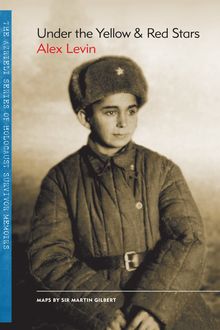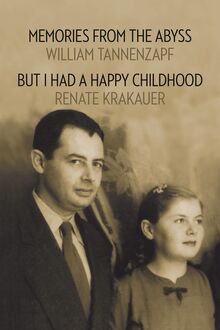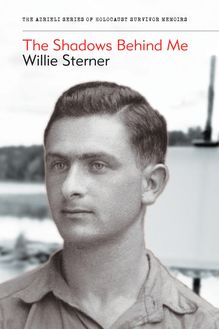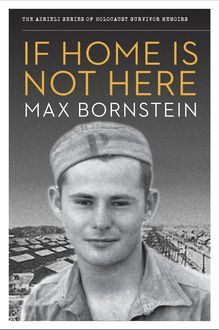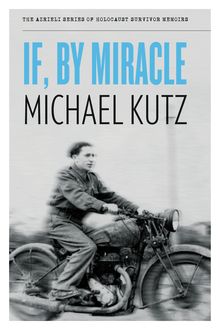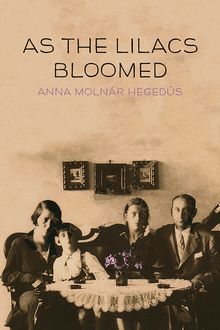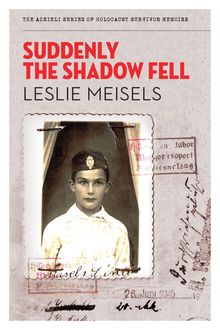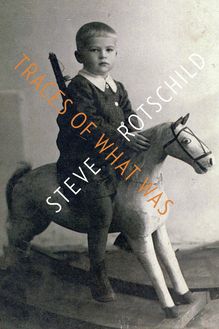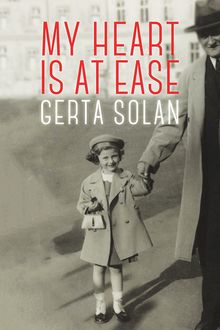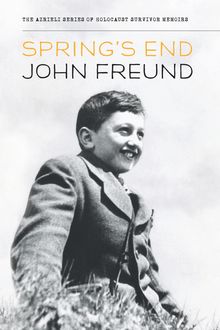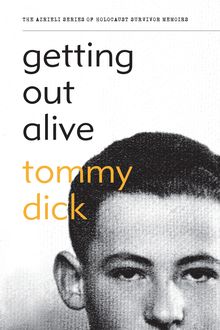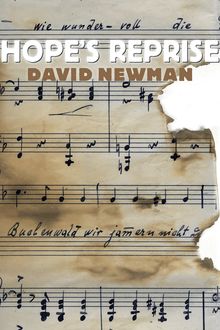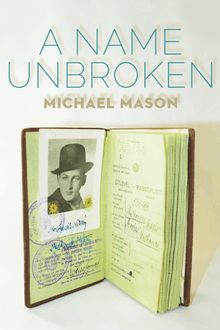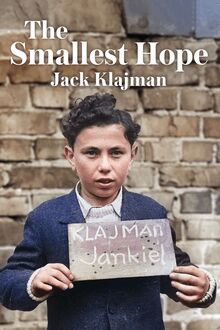-
 Univers
Univers
-
 Ebooks
Ebooks
-
 Livres audio
Livres audio
-
 Presse
Presse
-
 Podcasts
Podcasts
-
 BD
BD
-
 Documents
Documents
-
- Cours
- Révisions
- Ressources pédagogiques
- Sciences de l’éducation
- Manuels scolaires
- Langues
- Travaux de classe
- Annales de BEP
- Etudes supérieures
- Maternelle et primaire
- Fiches de lecture
- Orientation scolaire
- Méthodologie
- Corrigés de devoir
- Annales d’examens et concours
- Annales du bac
- Annales du brevet
- Rapports de stage
La lecture à portée de main
Vous pourrez modifier la taille du texte de cet ouvrage
Découvre YouScribe en t'inscrivant gratuitement
Je m'inscrisDécouvre YouScribe en t'inscrivant gratuitement
Je m'inscrisEn savoir plus
Vous pourrez modifier la taille du texte de cet ouvrage
En savoir plus

Description
Sujets
Informations
| Publié par | Azrieli Foundation |
| Date de parution | 01 septembre 2009 |
| Nombre de lectures | 1 |
| EAN13 | 9781897470633 |
| Langue | English |
| Poids de l'ouvrage | 1 Mo |
Informations légales : prix de location à la page 0,0300€. Cette information est donnée uniquement à titre indicatif conformément à la législation en vigueur.
Extrait
E/96: Fate Undecided
Paul-Henri Rips
The Azrieli Series of Holocaust Survivor Memoirs
SERIES II: SENIOR EDITORIAL BOARD
Sara R. Horowitz, Chair Irving Abella Naomi Azrieli Michael Brown Janet Webber Mark Webber
Senior Editor for this volume: Janet Webber
Andrea Knight, Managing Editor Elin Beaumont, Program Coordinator Aurélien Bonin, Research & Translation Erika Tucker, Program Assistant Jody Spiegel, Executive Coordinator
Tamarah Feder, Managing Editor & Program Manager (2005–08)
Mark Goldstein, Art Director Maps by Sir Martin Gilbert and François Blanc
Contents
Introduction
Author’s Preface
Invasion
Occupation
Prison — Dole and Paris
Pithiviers
Return to Antwerp
Brussels
Château de Bassines
Kazerne Dossin
Release
Liberation
Epilogue
Glossary
Acknowledgments
Maps & Photographs
Index
Copyright
About the Azrieli Foundation
Also Available
Series Preface:In their own words...
In telling these stories, the writers have liberated themselves. For so many years we did not speak about it, even when we became free people living in a free society. Now, when at last we are writing about what happened to us in this dark period of history, knowing that our stories will be read and live on, it is possible for us to feel truly free. These unique historical documents put a face on what was lost, and allow readers to grasp the enormity of what happened to six million Jews – one story at a time.
David J. Azrieli, C.M., C.Q., MArch Holocaust survivor and founder, The Azrieli Foundation
Since the end of World War II , over 30,000 Jewish Holocaust survivors have immigrated to Canada. Who they are, where they came from, what they experienced and how they built new lives for themselves and their families are important parts of our Canadian heritage. The Azrieli Foundation-York University Holocaust Survivor Memoirs Program was established to preserve and share the memoirs written by those who survived the twentieth-century Nazi genocide of the Jews of Europe and later made their way to Canada. The program is guided by the conviction that each survivor of the Holocaust has a remarkable story to tell, and that such stories play an important role in education about tolerance and diversity.
Millions of individual stories are lost to us forever. By publishing the stories written by survivors and making them widely available to a broad audience as the Azrieli Series of Holocaust Survivor Memoirs, the program seeks to sustain the memory of all those who perished at the hands of hatred, abetted by indifference and apathy. The personal accounts of those who survived against all odds are as different as the people who wrote them, but all demonstrate the courage, strength, wit and luck that it took to prevail and survive in such terrible adversity. The memoirs are also moving tributes to people – strangers and friends – who risked their lives to help others, and who, through acts of kindness and decency in the darkest of moments, frequently helped the persecuted maintain faith in humanity and courage to endure. These accounts offer inspiration to all, as does the survivors’ desire to share their experiences so that new generations can learn from them.
The Holocaust Survivor Memoirs Program collects, archives and publishes these distinctive records and the print editions are available free of charge to libraries, schools and Holocaust-education programs across Canada, and to the general public at Azrieli Foundation educational events. Online editions of the books are available on our web site, www.azrielifoundation.org .
The Israel and Golda Koschitzky Centre for Jewish Studies has provided scholarly assistance and guidance in the preparation of these memoirs for publication. The manuscripts as originally submitted are preserved in the Clara Thomas Archives and Special Collections at York University, and are available for review by interested scholars.
The Azrieli Foundation would like to express deep appreciation to Tamarah Feder, Managing Editor and Program Manager 2005–2008 for her contribution to the establishment of this program and for her work on Series i and ii. We also gratefully acknowledge the following people for their invaluable efforts in producing this series: Mary Arvanitakis, Elin Beaumont, François Blanc, Aurélien Bonin, Florence Buathier, Mark Celinscack, Nicolas Côté, Jordana de Bloeme, Darrel Dickson (Maracle Press), Andrea Geddes Poole, Sir Martin Gilbert, Esther Goldberg, Mark Goldstein, Elizabeth Lasserre, Lisa Newman, Carson Phillips, Susan Roitman, Judith Samuels, Randall Schnoor, Erica Simmons, Jody Spiegel, Mia Spiro, Erika Tucker and Karen Van Kerkoerle.
I dedicate this memoir to my parents, Isidore and Fanya Rips, for all they have done and suffered for my sister, Sina, and me during the military occupation of Belgium by the German Nazis from 1940 to 1944.
I also dedicate this memoir to my children, Ira and Larry, who pressured me to put my tribulations on record, and to my grandchildren, Bevlyn, Ellie, Shayna and Keri, so that the world should never forget.
And to my wife, Lilli, thank you for your unfailing support in my efforts to write this book.
Introduction
Paul-Henri Rips, now of Toronto, Canada, was born in Antwerp, Belgium on October 23, 1929. When World War II reached the Low Countries – Belgium, the Netherlands and Luxembourg – in the spring of 1940, he was ten years old. In 1994, at the urging of family and friends, he recorded his experiences from May 1940 until the liberation of Brussels in September 1944. Thus, in the pages that follow, a sixty-five-year-old man is reflecting, fifty years later, on those four and a half years, recalling what had impressed itself on the eyes, ears, heart and mind of a young boy.
In a unique combination of place, time and perspective, Paul-Henri Rips’ narrative offers an evocative and differentiated consideration of the many people he encounters: perpetrators, resistance fighters, collaborators, black marketers, German and Allied soldiers, Belgian and French citizens living through the Nazi occupation, Roma, and the other members of the Nazis’ designated chief victim group – Jews. Central to this cast of characters is, of course, Paul-Henri’s own family, including his beloved father, grandmother, mother, and sister.
Interweaving observations of people, events and places, two common themes emerge in Rips’ story. The first theme revolves around the family’s active and resourceful attempts to flee Nazi occupation. The focus of the second theme is the aid that courageous – and, as Rips says, “patriotic” – Belgian Christians render to their Jewish neighbours and the self-help undertaken by Jewish individuals and organizations.
Throughout, Rips demonstrates a modesty that stems from his religious faith and his understanding of the larger set of horrors that was the Holocaust. Along with his reluctance to paint black-and-white pictures of people and their motives, the account benefits from his recognition of the mixed emotions that characterized his own response to events. Thus, he registers the “fear, anguish, despair and … inexplicable hope that filled every day of our life during the terrible four years of occupation.”
Paul-Henri Rips’ resonant and intensely personal chronicle illuminates many aspects of the Belgian Jewish community’s wartime experience that are not well-known. On the eve of the war, the Jewish community in Belgium was small relative to other countries under German occupation – only 65,000 to 75,000 – and largely made up of immigrants who did not have deep roots in the country. About 85 per cent of the Jews living in Belgium in 1940 had arrived after the end of World War I in 1918, the majority of them immigrants from Central and Eastern Europe – Poland, Lithuania, White Russia, Ukraine and Bessarabia (then part of Greater Romania) – who were intending to pass through Belgium on their way elsewhere. The largest number of Jewish immigrants in the country had arrived between 1925 and 1930 – that is, after the borders to the US and South America were closed and before the onset of the Depression. It is estimated that only between 6 and 10 per cent of the Jews in Belgium had Belgian citizenship in 1940.
The Rips family’s history reflected these demographic and geographic factors. Paul-Henri’s father, Isidore, was a successful diamond merchant who had emigrated from Minsk in Russia to the Netherlands before arriving in Antwerp in the 1920s. Although the city of Antwerp had been a flourishing centre of the diamond industry for almost five hundred years, Jews had become a dominant part of the industry only in the mid-1860s when the influx of Jewish immigrants from Central and Eastern Europe coincided with the discovery of diamonds in South Africa. Paul-Henri’s mother, Faja, was a Russian teacher who had come to Antwerp with her mother a few years later than Isidore. Her family was also originally from Minsk, but had first emigrated to Riga in Latvia before settling in Belgium. In 1940 Paul-Henri, his parents and sister were all Belgian citizens, but his grandmother was not. Faja and Isidore Rips were a cosmopolitan and intellectual couple who had married in Paris. Their first child, Sina, was born three years before Paul-Henri on October 23, 1929. Isidore spoke four languages – Russian, French, Flemish and Yiddish –
-
 Univers
Univers
-
 Ebooks
Ebooks
-
 Livres audio
Livres audio
-
 Presse
Presse
-
 Podcasts
Podcasts
-
 BD
BD
-
 Documents
Documents
-
Jeunesse
-
Littérature
-
Ressources professionnelles
-
Santé et bien-être
-
Savoirs
-
Education
-
Loisirs et hobbies
-
Art, musique et cinéma
-
Actualité et débat de société
-
Jeunesse
-
Littérature
-
Ressources professionnelles
-
Santé et bien-être
-
Savoirs
-
Education
-
Loisirs et hobbies
-
Art, musique et cinéma
-
Actualité et débat de société
-
Actualités
-
Lifestyle
-
Presse jeunesse
-
Presse professionnelle
-
Pratique
-
Presse sportive
-
Presse internationale
-
Culture & Médias
-
Action et Aventures
-
Science-fiction et Fantasy
-
Société
-
Jeunesse
-
Littérature
-
Ressources professionnelles
-
Santé et bien-être
-
Savoirs
-
Education
-
Loisirs et hobbies
-
Art, musique et cinéma
-
Actualité et débat de société
- Cours
- Révisions
- Ressources pédagogiques
- Sciences de l’éducation
- Manuels scolaires
- Langues
- Travaux de classe
- Annales de BEP
- Etudes supérieures
- Maternelle et primaire
- Fiches de lecture
- Orientation scolaire
- Méthodologie
- Corrigés de devoir
- Annales d’examens et concours
- Annales du bac
- Annales du brevet
- Rapports de stage

